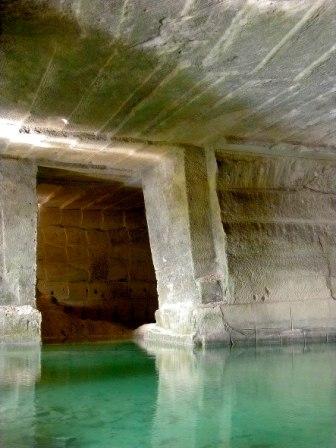|
The Stone of Vicenza is a tender limestone that is extracted from the
"Colli Berici" (Beric Hills) from hollows in gallery.
This material is classified as limestone cliff of sandstone origin, characterized by the
presence of numerous fossile fragments. Easy workable with instruments by hand, it was employed
since the roman period for the realization of sculptures, architectonic columns, trabeazioni
and decorative details.
(Ancient Vicenza was built with this material: see the rests of the Berga theatre).
It was also used a lot in the medieval period, in the plastic decoration, as an example in the carving
of the complicated and elegant gotic decorations (see the Cà d′Oro, the Pigafetta House
or the altars of the Carmini). In XVI the century the architect Palladio employed this stone in great amount
in its buildings and villas scattered in all Veneto territory. The young Andrea, before becoming
an architect followed a long apprenticeship as a stone-cutter, in the artisan workshops in the cities of Padua
and Vicenza; for this reason he knew very well the techniques of working and the building materials
used in the building trade. In the following centuries the stone of Vicenza was employed in the realization
of wide and shady gardens that encircled the villas. Still today in the territory of the
"Colli Berici",
this particular material is extracted. Various artisan workshops employ it in the realization of
works of remarkable artistic and aesthetic interest.
|



